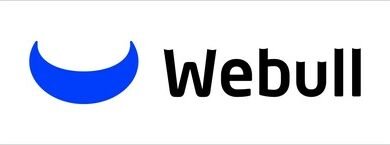‘European Defence Bond Label’: this is Euronext’s new label for bonds that finance the defence sector

In recent years, the evolving international geopolitical landscape has driven states and supranational entities to increase their defence spending. The European Union has responded with a range of initiatives to strengthen the financing of the European defence industry. These include, among others, the European Defence Fund (EDF) to support research and development projects, proposals to accelerate joint production and procurement of military equipment (such as EDIRPA), the European Peace Facility, and various regulatory measures aimed at streamlining and coordinating joint purchases among Member States. There are even ongoing discussions around fiscal incentives, such as tax exemptions or the removal of VAT on joint defence purchases.
The Value of the European Defence Bond Label (“EDBL”)
Alongside these public sector efforts, the private sector has also begun to develop mechanisms to support companies—both domestic and international—in securing funding for defence-related projects through capital markets. Mirroring the evolution seen in the renewable energy and sustainability sectors, the launch of the European Defence Bond Label (EDBL) by Euronext represents a significant step forward.
The EDBL establishes a voluntary system for identifying bonds that support the Defence and Security sector within Europe and which procure alignment with determined objectives such as the support of the European strategic autonomy, security resilience, and the development of a robust European Defence and Security industrial base (the “EDBL Objectives”).
This label not only facilitates access to capital markets for such companies but also simplifies the due diligence process for investors, making it clear that their investments are aligned with the EDBL Objectives as well as the principals and objective of the European Union.
Europe has already witnessed its debut issuance under the EDBL framework (see Euronext’s Press Release), and more are expected to follow. Given the strategic significance of the defence sector, we anticipate that similar issuances will soon reach Spanish market as well.
Why is the EDBL useful?
For Issuers:
- The EDBL offers a streamlined process for listing eligible bonds and provides a clear framework for accessing capital.
- The label signals to the market that the issuer aligns with the European security goals and ESG standards.
- Issuers may also benefit from enhanced reputation and potential eligibility for future public support.
For Investors:
- The EDBL brings greater transparency and consistency to the defence bond market.
- Investors can more easily identify bonds that meet European legal, security, and ESG (Environmental, Social, and Governance) criteria.
- The framework supports responsible investment in a sector that is increasingly important for Europe’s resilience.
Although its current use is still limited, this summary distills the main ESG and bond-related features of the EDBL, focusing on information most relevant to potential issuers and investors.
1. Goals
The EDBL framework is designed to:
- Enable the Defence and Security sector in Europe to access private, long-term funding.
- Improve clarity and trust for investors considering defence-related bonds.
- Ensure that financing activities are consistent with European legal, security, and ESG expectations.
- And to establish an expedited review and listing procedure for debt instruments that meet the label’s criteria (the “Fast-track Admission Process”).
2. Some relevant ESG criteria to obtain the EDBL label
Governance:
- Issuers must adhere to all applicable European and national laws, including those related to defence, dual-use technologies, and cross-border trade controls. The exclusions defined by this label apply solely to armament activities that are banned by international treaties which have been ratified by the respective country such as, chemical weapons, biological weapons, cluster munitions, among others.
- Issuers shall make public their internal guidelines on human rights, anti-corruption, export/import compliance, data protection, AML and terrorist financings (if applicable).
- To retain the label, issuers must annually confirm ongoing compliance, supporting strong governance and transparency.
Social and Ethical Aspects:
- The framework prohibits the use of proceeds for activities banned by international agreements, such as certain types of weapons.
- Projects that could result in breaches of humanitarian law or raise significant ethical issues, such as harm to civilians, are not permitted.
- The EDBL is aligned with European principles, including respect for human rights and responsible corporate conduct.
Environmental Aspects:
- Although the EDBL’s primary focus is on defence and security, issuers are encouraged to consider the environmental footprint of their activities, especially in areas like dual-use technology and critical infrastructure.
- Transparency is promoted by recommending that issuers report on the location and nature of funded activities, which can help assess environmental impacts.
3. Who Can Issue and What Instruments Qualify
Eligible Issuers:
- The framework is open to a range of entities, including corporates, sovereigns, supranationals, and financial institutions based in Europe or associated countries who must comply with applicable European and national regulations.
- Issuers are encouraged to show that the majority of funds raised—at least 85%—are directed towards the EDBL Objectives (while not contributing to activities that could undermine European safety or autonomy).
Eligible Instruments:
The EDBL accommodates all debt instruments, such as senior and subordinated bonds, hybrids, convertibles, and asset-backed securities, among others, notwithstanding their structure or ranking.
4. Use of Funds, Restrictions and Reporting Requirements
Examples of Permitted Activities:
- Funding can be used for research, development, and production of defence systems, as well as for dual-use technologies.
- Other eligible uses include cyber defence, secure communications (including but not limited to space and satellite infrastructure), intelligence systems, surveillance systems and the protection of critical infrastructure and supply chains.
- Military logistics, maintenance, and operational support networks, encompassing areas such as fuel supply, ammunition, storage facilities, and transportation.
- Infrastructure dedicated to national or collective defence.
- Services that provide direct support to defence capabilities, including areas like engineering, simulation, tactical software development, or specialized recruitment and training.
- Support for civil protection and crisis response is also included.
In all cases proceeds must be directed towards entities or activities that:
- Adhere to the European Union’s legal requirements and guidelines related to defence, security, and civil protection.
- Align with key European initiatives and policies, including the Strategic Compass, the European Defence Fund, the European Peace Facility, or national defence strategies that support European strategic goals.
Examples of Prohibited Activities:
- The framework excludes any financing for activities related to banned weapons, entities under US and European sanctions, or projects that conflict with European strategic interests.
- It also bans funding for activities linked to money laundering, terrorism, or serious breaches of international law (including humanitarian law).
- Issuers are encouraged to report regularly on the allocation of proceeds including information on financed activities and their alignment with the eligibility criteria.
5. The meaning behind Fast-track Admission Process
Euronext will give priority to processing listing applications for EDBL-aligned instruments as much as its internal procedures allow. While accelerated admissions are already available for Multilateral Trading Facilities (MTFs), applications for Regulated Markets are still subject to the schedules and decisions of the relevant National Competent Authorities.
Nonetheless, Euronext will be dedicated to ensuring that all applications meeting the EDBL criteria are handled swiftly and efficiently on its end.
For instance, for first-time issuers, internal processes such as KYC, eligibility assessments, and due diligence will be expedited. Additionally, Euronext has stated that it will work collaboratively with regulatory authorities to help facilitate a quicker review process whenever possible.
6. Labelling Process and Ongoing Requirements
To obtain the EDBL, issuers must submit a self-declaration confirming compliance with the framework, which Euronext reviews for completeness.
- Currently, no external verification or second-party opinion is required for the label award, but Euronext reserves the right to withdraw the label if the criteria are no longer met.
- Euronext’s review of the EDBL eligibility criteria will be strictly limited to a formalistic review on consistency and completeness of the issuer’s self-declaration, with a label confirmation being issued between 1 and 3 business days.
- Issuers must renew their self-declaration each year to maintain the label, ensuring continued alignment with ESG and strategic standards.
- Bonds with the label benefit from a distinct visual identity and are featured on Euronext’s platforms, increasing their visibility to investors.
- The issuers does not bear any additional cost for obtaining the label.
- When financial institutions act as intermediaries for the proceeds, they are responsible for implementing internal policies and conducting due diligence to confirm that the activities they finance also adhere to the relevant operational and legal standards.
A forward-looking initiative
The European Defence Bond Label is a forward-looking initiative by Euronext that integrates ESG principles into defence sector financing.
By offering a transparent and credible system, the EDBL being helps both issuers and investors contribute to Europe’s security objectives while upholding high standards of governance, ethics, and social responsibility.






